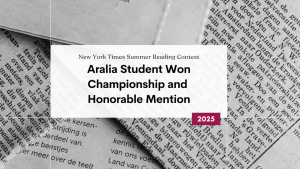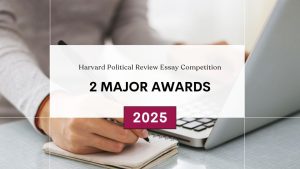Fitzwilliam College Essay Competition
Fitzwilliam College, part of the University of Cambridge, annually hosts an esteemed Fitzwilliam College essay competition, inviting students to delve into academic subjects beyond the traditional school curriculum.
Interested in the competition?

Competition Overview
Students who are in Grade 11
Eligibility
Free
Entry fee
March 1, 2024 at 6pm
Submission deadline
Competition Details
1. Eligibility
This competition is open for students in their penultimate year of education, including Year 12 in England and Wales, S5 in Scotland, and Year 13 in Northern Ireland (which is Grade 11 in the United States educational system). Students from any country can participate, but submissions are written in English.
2. Competition Categories
Ancient World and Classics, Archaeology, Economics, History, Land Economy, Medieval World and Slavonic Studies.
3. Writing Webinars
The competition also hosts two essay writing webinars to guide students throughout the competition:
- Webinar 1 – Initial Preparation – 12th January 2024 at 6 pm
- Webinar 2 – Finalising your Essay – 16th February 2024 at 2pm
Submission Details
Submission Deadline: March 1, 2024
1. Word Limit
2500 words for Archaeology, Classics & Ancient World, History, Land Economy, Slavonic Studies, and Medieval World; 1500 words for Economics; 500 words for the Architecture narrative.
2. Submission Guidelines
Submissions should strictly adhere to the word limit set out in the subject brief above and contain a bibliography at the end. The word count excludes the bibliography but includes any footnotes. Each page should be numbered and contain the applicant’s full name.
3. Submission Limit
Students are allowed to enter one competition and may only submit one entry to that competition.
Questions
1. Ancient World and Classics
- What qualities made heroes heroic in ancient literature? Discuss with reference to any text or texts of your choice.
- How can the study of dead languages help us to understand ancient societies? Answer with reference to any period and region of your choice.
- “Imagery is the most important source for studying women in the ancient world.” Do you agree? Discuss with reference to any period and region of your choice.
- “The study of art and/or archaeology reveals people the texts ignore.” Discuss with reference to any people, period and region of your choice.
- What led to either a) the development of Athenian democracy or b) the fall of the Roman Late Republic?
- “Ancient philosophy is not relevant to modern political or ethical debates.” Do you agree? Discuss with reference to any text or texts and any political and/or ethical debates of your choice.
2. Archaeology
- To what extent can the archaeology of the environment prepare us for the era of ‘global boiling’?
- ‘Archaeology only deals with interpretations, never facts’. Discuss.
- To what degree is modern fiction and poetry more effective than archaeology in telling stories about the past?
3. Economics
- “The main claim of microeconomic theory is that markets are beneficial institutions.” Discuss.
- High and stable economic growth, as measured by an annual percentage change in real Gross Domestic Product (GDP), has long been targeted as a primary objective of governments’ economic policies across the globe. Is GDP growth an adequate measure of a country’s prosperity, a nation’s well-being and an appropriate policy objective? Discuss
4. History
Fitzwilliam College traces its origins to 1869, when the University of Cambridge launched an initiative to facilitate access to Higher Education for the many students who could not afford the costs of college membership. The initiative was part of the broader transformation of education in Britain, as the changes wrought by industrialisation and urbanisation created a need to cater for a growing, increasingly diverse and literate population. Earlier decades had already witnessed the establishment of King’s College London, Durham University, and the University of London, for instance, and colleges for women were beginning to open in Cambridge and Oxford. These radical social and economic changes were themselves connected to the intensification of globalisation in the second half of the nineteenth century, which placed Britain at the heart of an ever-tighter web of economic relations between the world’s continents.
But the same year also witnessed the birth of Mohandas – later Mahatma – Gandhi, who would come to challenge Britain’s colonial rule and lead India on the path to independence; the death of Alphonse de Lamartine, the poet and politician who had proudly proclaimed France’s Second Republic in 1848, but whose final years were lived under the more authoritarian Second Empire; the marriage of Emperor Meiji, which consolidated Japan’s monarchy as the country began a new process of industrialisation; and the establishment by Susan B. Anthony and Elizabeth Cady Stanton of the National Woman Suffrage Association in a United States still recovering from the Civil War.
In 1869, as throughout history, old and new worlds collided. We invite applicants to examine, in their essays, a topic of their choice, connected to the changes taking place in or around the year 1869. Essays may focus on a particular event, a person, a political movement, or even a process of social, economic or cultural change, but they should consider the interaction of ‘old’ and ‘new’ forces which the chosen topic illuminates.
5. Land Economy
- When it comes to decarbonizing the economy, “it’s not terribly difficult to know what needs to be done, though it is of course immensely difficult to get the relevant actors (government and others) to do it” (Barry, 1999). Discuss this statement, preferably drawing on evidence from the UK.
- The current Conservative government led by Rishi Sunak has unexpectedly decided to scrap part of the HS2 project. Irrespective of your overall political views towards the current government, do you think this was a sound decision from an economic point of view?
- Some claim that modern communication platforms, such as Zoom, and the work-from-home revolution will lead to a decline of inner cities. Do you agree?
6. Rosemary Horrox Medieval World
- “A World lit only by fire” – is this a fair characterisation of the thousand years of history between AD 500 and AD 1500?
- Is European Medieval history a study of white men?
- Are peasants more interesting than kings (answer with reference to the history of any part of the world in the middle ages)?
- Was High Medieval Europe (c.1100-1300) essentially going through the same experience as Kamakura period Japan (1185-1333)?
- Did the Hundred Years’ War create England and France as nation-states?
- To what extent was English imperialism the main cause of political change in medieval Britain and Ireland?
7. Slavonic studies
- Select any single work of Polish, Russian or Ukrainian literature or visual art (a film, a painting, an architectural drawing, or a poster) and discuss the ways in which it reflects some of the principal political and social issues of its age.
- ‘Images of the past are central to concepts of contemporary national identity.’ Discuss with respect to either Polish, Ukrainian or Russian culture. You may focus on one work of contemporary literature or art from one of the three countries, or you may examine the rhetoric of contemporary politicians from one or more of the three counties.
- ‘The history of every nation is constantly being rewritten to suit the needs of the present.’ Discuss with respect to either Poland, Ukraine or Russia.
- Select a Polish, Russian or Ukrainian writer, artist or filmmaker and discuss the relevance of their work for the present. Be sure to support your discussion by offering a detailed analysis of one work.
- ‘The current Russian waged war on Ukraine is a war of identity.’ Discuss.
8. Architecture Design
You are challenged to design a new building somewhere on the Fitzwilliam College site. This building will serve as a hub for interaction between teaching staff and students, where they can share and explore ideas. During the design process, you will need to think about what programmes or activities need to be accommodated in the new building. For instance, you can consider including spaces for social interaction such as a new cafe, as well as spaces to have
quieter conversations in groups of different sizes. You must also consider possible locations for the new building within the College site, taking into consideration the other College buildings in your design, as well as the landscaped areas preserving mature trees as much as possible. This should be seen as an opportunity to create an interesting relationship between the interior and exterior spaces.
Submission Details:
- Project Title that best describes your design intention and final design solution
- Design Narrative of 500 words that concisely explains your design inspiration, design objective, and final design strategy developed to meet your design objective
- Drawings that show the following:
1) floor plan(s) of your building at 1:200 scale
2) one elevation and one section of the building that best describes main features of the design solution
3) one site plan that indicates the location of the building in relation to existing buildings in the college site. A detailed site plan showing the ground floor plans of the individual buildings is available on the essay competition website for reference, but you should produce a new drawing for the competition submission.
4) one perspective drawing of your building that highlights your design intention and shows the placement of a new building in relation to existing
college buildings nearby








